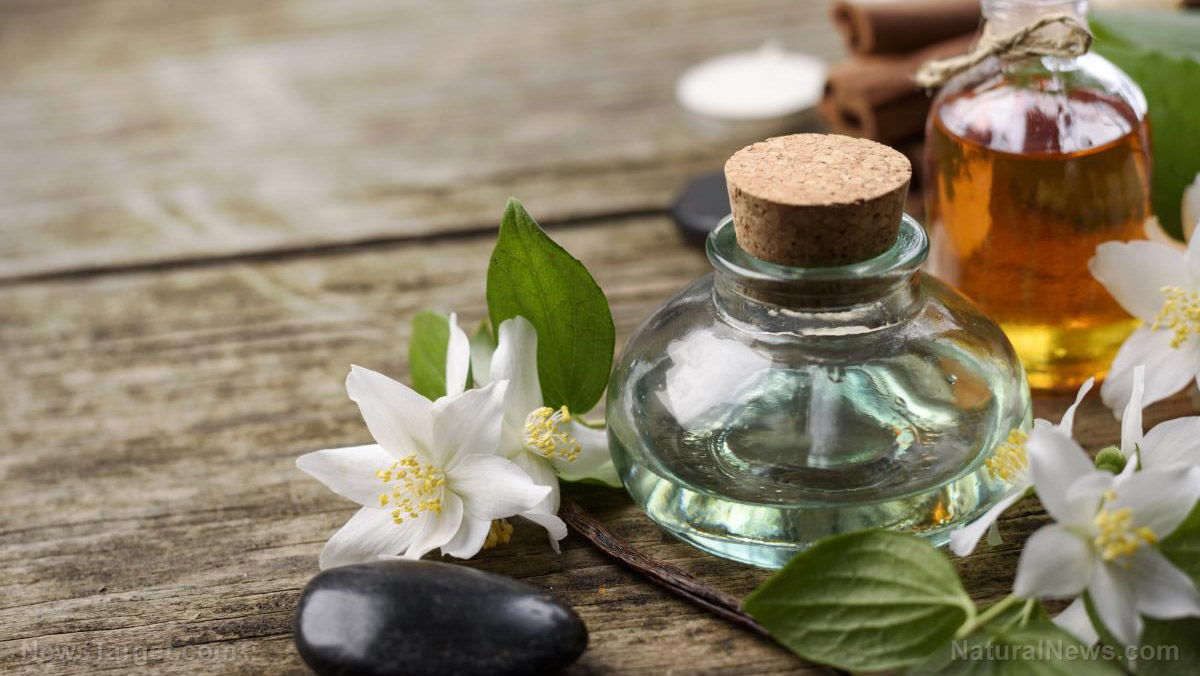Breathe easy with these 7 essential oils for sinus congestion

(Natural News) Sinus congestion can make you feel miserable. Some people find it difficult to breathe or sleep when their nasal passages are blocked. Fortunately, there are essential oils that help alleviate the discomfort caused by sinus congestion.
Ease sinus congestion with essential oils
Sinusitis is often caused by a viral or bacterial infection, which causes an inflammation in the sinuses. Sinus congestion is a symptom of sinusitis and it occurs when fluids are blocked or trapped in the sinuses. Congestion is often uncomfortable and can even be painful. Here are some essential oils that can soothe the discomfort caused by sinus congestion, thanks to their antiviral, antibacterial, and anti-inflammatory properties.
Peppermint oil
Inhaling peppermint oil helps with congestion because it contains a compound called methanol, which provides a cooling sensation that relieves stuffy nose. In addition, methanol helps open airways and thins out mucus. (Related: Peppermint oil found to reduce symptoms of irritable bowel syndrome.)
Peppermint oil contains beneficial compounds that allow it to soothe and numb certain areas of the sinuses, helping it control sneezing and mucus secretion.
Eucalyptus oil
Eucalyptus oil is one of the most effective essential oils when it comes to clearing sinus congestion thanks to its compound cineole. In fact, many people use eucalyptus oil for steam baths to clear stuffiness and congestion.
Tea tree oil
Tea tree oil is another go-to remedy for sinus infection. There are several ways to use tea tree oil. It can be diluted in a carrier oil like sweet almond oil or coconut oil and applied directly to the body or used in essential oil diffusers.
100% organic essential oil sets now available for your home and personal care, including Rosemary, Oregano, Eucalyptus, Tea Tree, Clary Sage and more, all 100% organic and laboratory tested for safety. A multitude of uses, from stress reduction to topical first aid. See the complete listing here, and help support this news site.
Oregano oil
Oregano oil contains carvacrol, a compound with antibacterial properties that can clear sinuses and fight congestion. Carvacrol works by stopping bacteria from growing.
Clary sage
Clary sage essential oil is a great antimicrobial agent. It is commonly used in aromatherapy, and every part of the clary sage plant — leaves, flowers, stems, and seeds — provides health benefits, such as improved mental health function and decreased blood pressure, among others.
Lavender oil
Lavender essential oil has analgesic effects, making it effective at reducing pain and swelling from sinus congestion. Lavender is also known to help people relax and sleep easier at night.
Rosemary oil
The anti-inflammatory nature of rosemary oil can help with sinusitis. This essential oil can relieve swollen sinuses and serves as a rich source of antioxidants.
Pine oil
Pine essential oil is an expectorant and decongestant, which relieve symptoms of sinusitis by clearing the respiratory tract of mucus and phlegm. Pine oil also has antibacterial properties that aid in treating sinus congestion.
Clove oil
This analgesic essential oil has anti-inflammatory and antioxidant properties, making it great for managing a variety of symptoms and treating sinus infection.
How to use essential oils
There are a number of ways to use essential oils.
- Inhale directly: This method requires adding a few drops of essential oil to a tissue and gently breathing in with the tissue near the face. Note that essential oils can cause irritation, so it’s best to avoid contact with the skin.
- Inhale steam: Another way to inhale essential oils is through steam. Simply add a few drops to a bowl of boiling water and inhale the steam.
- Use a diffuser: Diffusers make it easy to use essential oils. Just pick a blend to put in the diffuser and let the diffuser disperse the oil into the air.
- Add to a bath: Adding essential oils to your bath is a great way of using them. Just add a few drops to your bath water and inhale their aroma while soaking.
Whether you’re having a stuffy nose or just want to have a relaxing bath before sleep – the health benefits of essential oils are endless.
Sources include:


